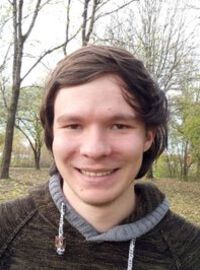By combining real world data from openstreetmaps with state-of-the-art generated agent data for a German city, we aim to provide both a non-trivial bound on the size of the required public charging infrastructure and additional estimates on the distribution and placement of the charging stations.
This is ongoing work with Stephan Sorgatz (VW) and Stefan Weltge.
Tobias Crönert (TUM, Chair of Logistics & Supply Chain Management): "Equilibrium identification and selection in integer programming games"
Problem definition: Integer programming games provide a framework to model (integer) decisions under competition - which allows for several applications ranging from decisions on competitive production volumes to location selection under competition. The predominant solution concept for integer programming games is the identification of a Nash equilibrium; a strategy combination where no player benefits from unilaterally changing his strategy. While there are algorithms capable of identifying singular equilibria, they do not enumerate the full set of equilibria and thus cannot select the single most likely equilibrium of a given integer programming game.
Methodology: We propose a solution method, combining sampling techniques and equilibrium selection theory within an algorithm that integrates the determination of all equilibria and the subsequent identification of the most probable equilibrium among said equilibria. For this process, we propose a column-generation approach, in which we divide the problem into a MIP-master problem capable of the identification of equilibria in a sample, as well as column-generating subproblems tasked with the sampling of best-responses and additional solution candidates.
Results and managerial implications: We showcase algorithmic performance in various instances of knapsack games, large scale facility location and design games as well as 3-player congestion games. We highlight differences in solution quality between the proposed approach and the state of the art, enabling decision makers in competitive scenarios to base their actions on the most probable equilibrium rather than an arbitrarily identified equilibrium.
Date: Monday 29th of June 2020, starting at 2 p.m.
The seminar will take place online.

